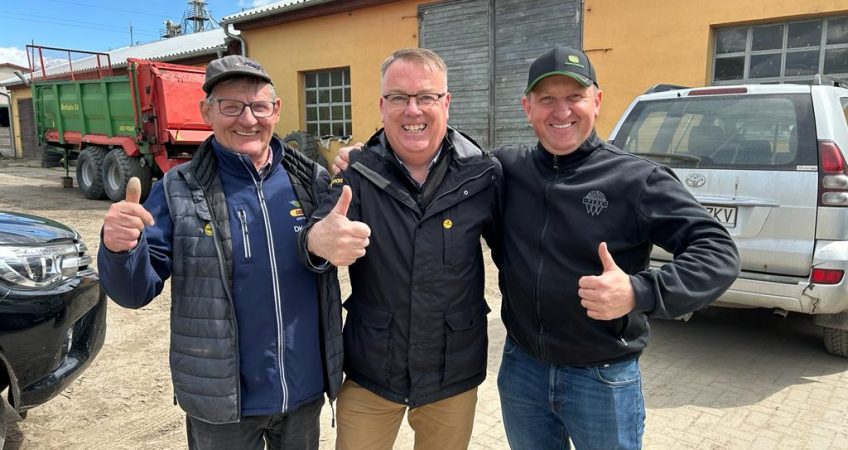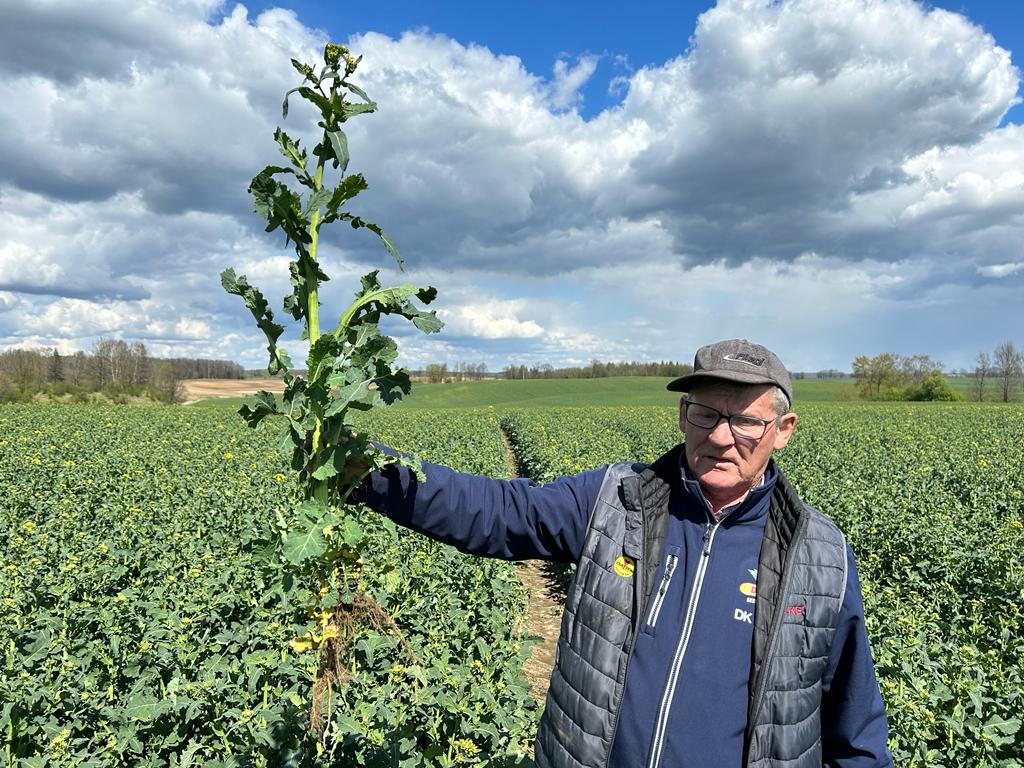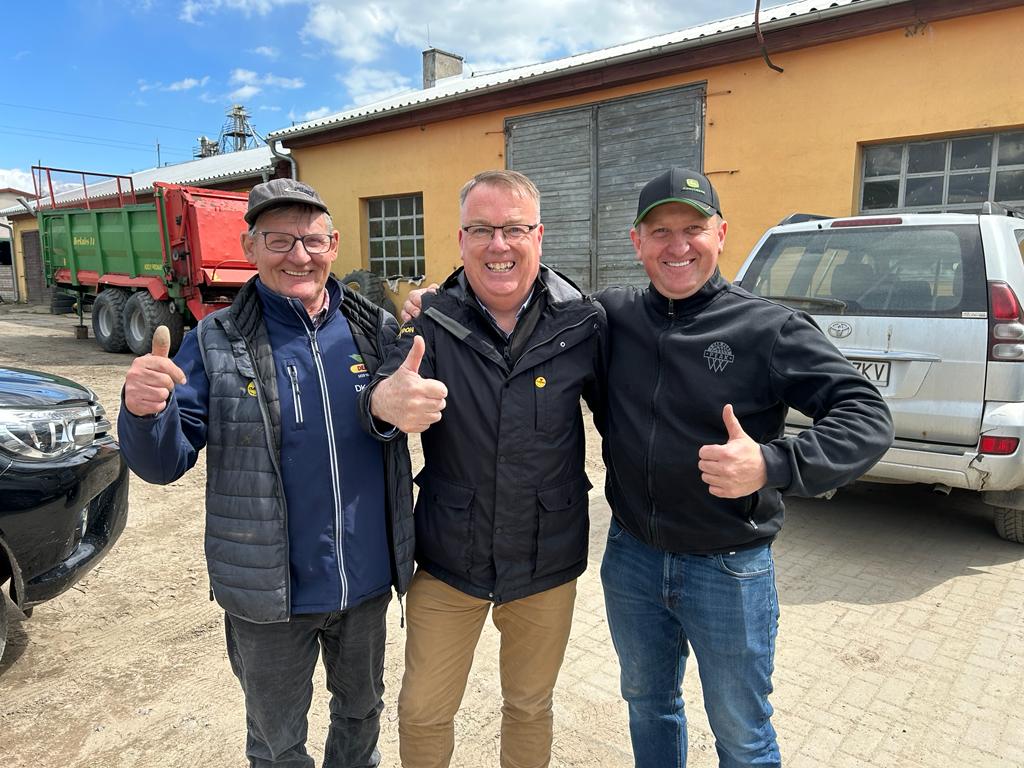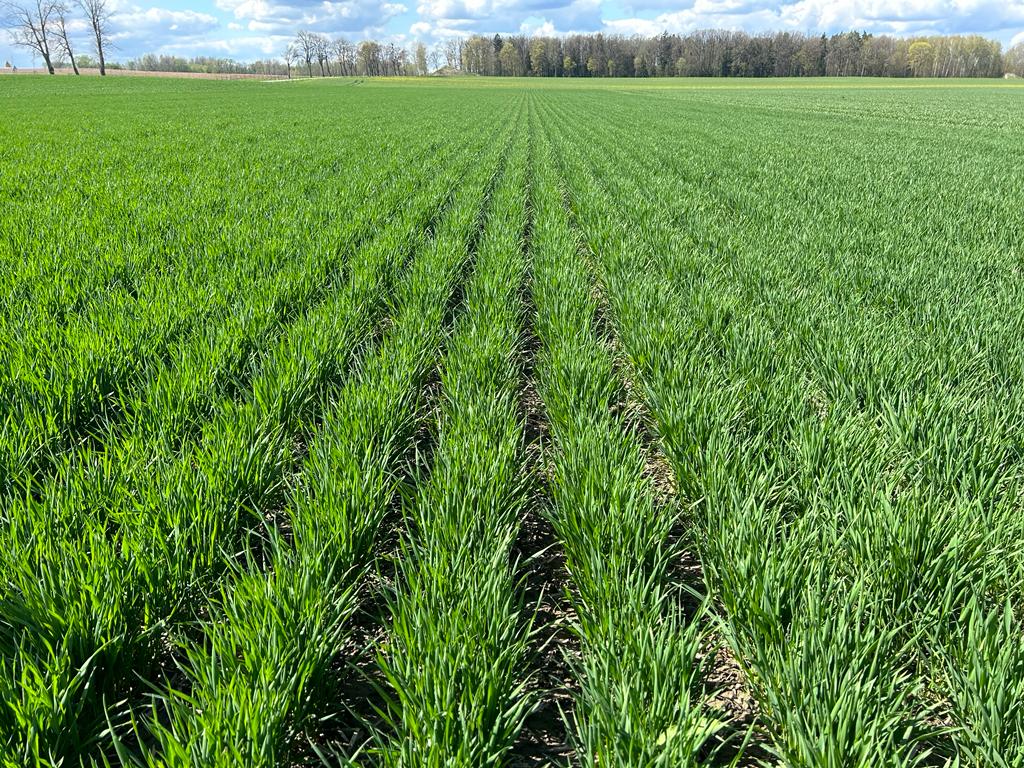
A father and son enterprise in the northern Mazuriy region of Poland decided to make a change to the way they established their crops; they moved to Claydon Strip Drilling following consultation and demonstrations from Claydon importer Fricke. Simon Revell, Claydon Export Manager, reports from his recent visit to see them
Andrzej Pauperowicz had been looking at the development of Claydon on social media and could see the benefits this could bring to their farming operation. When the Fricke Group were appointed importers of Claydon machinery for Poland it represented the ideal opportunity for Andrzej and his father Roman to investigate the Claydon Opti-Till® system of crop establishment first hand.
Lukasz Maruszczak, the local Fricke Sales Manager, could see the benefits this could bring to the farms in his area and was keen to further the discussions with Andrzej and Roman. A demonstration was organized with the assistance of Dariusz Fedyniak, the Claydon Product Specialist, to test the drill on the Pauperowicz farm.
The crop establishment results were astounding. Prior to the demonstration Dariusz visited the farm to discuss how to achieve the best results from Opti-Till® ensuring that the soil was not over cultivated before seeding.
This is an important point as the Straw Harrow is the crucial first pass directly after harvest spreading the crop residue evenly over the surface of the field which in turn encourages volunteers and weed seeds to germinate outside the following crop. The straw harrowing operation can be carried out up to 4 times if required, destroying the germinated weeds and volunteers of the first pass without needing to spray off.
An important point to note is that the Straw Harrow only works the soil to a maximum of 3 cm deep, leaving roots and earthworm burrows undisturbed. Moisture is retained as a mulch is formed minimising CO2 emissions and leaving ideal conditions for the Claydon Drill to seed into. The straw and crop residues left on the surface is a major reason why earthworm numbers have increased across the farm as they provide a major food source for the worms.
Following the demonstration, the Pauperowiczes were convinced this was the new way to establish their crops. They are now into their second season using the Claydon Hybrid Drill and the results look very good.
There are a number of benefits that are becoming apparent on the farm, even after only the second season using the Claydon system. One notable observation is the soil is coping better with the extreme weather events in the region; the soil is able to absorb torrential rainfall and has not been so badly affected by the prolonged drought periods. This is due to improved soil health and resilience which are major benefits of Opti-Till®.
Another major benefit of the Claydon system is the reduction in fuel consumption as the Pauperowiczes only move minimal soil compared to their old system.
Fuel consumption comparison : previous system compared to Claydon:
| Field passes | Depth cm | Output Ha/Hour | Fuel Consumption Litres/Hectare |
| Disc harrow 6m | 5 – 7 | 5 | 5.6 |
| Plough | 17 – 20 | 3 | 22 |
| Disc harrow 6m soil preparation | 5 – 10 | 5 | 6 |
| Cultivator drill 6m | 5 | 8 | |
| Roller | 9 | 3.5 | |
| Total | 45.1 | ||
| Disc harrow 6m | 5 – 7 | 5 | 5.6 |
| Heavy tine cultivator | 20 -25 | 3.5 | 17 |
| Disc harrow 6m soil preparation | 5 -10 | 5 | 6 |
| Cultivator drill 6m | 5 | 8 | |
| Roller | 9 | 3.5 | |
| Total | 40.1 |
Claydon Opti-Till®
| Straw Harrow 7.5m
2 to 3 times every 5 days. |
1 – 2 | 10 | 0.7 |
| Drill Claydon T6 | Leading tines up to 20cm | 4 | 12.5 |
| Roller – only if needed | 9 | 3.5 | |
| Total | 16.7 |
Another benefit of using Claydon Opti-Till® is that the soil is not cultivated so it is less vulnerable to rainfall restricting the seeding operation as the Claydon Drill can work into the undisturbed soil sooner. The design of the Claydon depth control wheels works on the undisturbed soil in front of the leading tine and A-share. Conventional cultivator seeders have full width tyre packers that generally work in front of the seeding coulters.
Roman has noticed that the plant rooting is greatly improved on his fields, helping to retain farm average yields as they have transitioned from the old system to the new Claydon method of establishing crops.
Due to the price of fertiliser, the Pauperowiczes are reducing their fertiliser inputs which at this time does not appear to be affecting yields.

Roman Pauperowicz checking out his oilseed rape at the end of April.

Roman (l) and Andrzeij (r) with Simon Revell, Claydon Export Sales Manager, following the field inspection at the end of April. All the crops looked very well across the whole farm.
The farm also trades grain and conducts field trials comparing crop varieties which have been established using the Claydon system. Below are wheat trials on the farm. Later in the season an open day will be held to compare the varieties’ performances.



